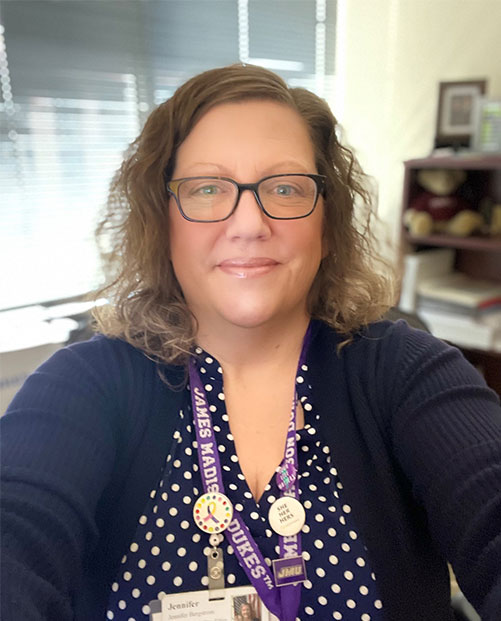
Help your family fulfill your wishes with advance care planning
Making healthcare decisions for a loved one about end-of-life care can be an excruciating experience for family members. They must struggle with whether to continue treatments, move to comfort care, allow resuscitation and other emotional choices.
Advance care plans (advance directive) can alleviate this stress for families. They include your living will and medical power of attorney (or healthcare agent) and can address critical issues, such as life support, pain management, IV nutrition, hydration, kidney dialysis and resuscitation.
Advance care planning is crucial because it is the voice of the patient when they can no longer speak for themselves,” says Jennifer Baumgrotz, manager for the Sentara Center for Healthcare Ethics, who started working for Sentara as a patient advocate in 2013.
“I drive the message home. It really does alleviate a lot of stress on family members. They are no longer making the decision because the patient has already done so. They are just honoring the decision.”
Jennifer’s path toward healthcare started when she interned at the Health Communication Institute at JMU. She was intrigued by merging conflict resolution, her degree concentration, and health communications.
Jennifer has helped patients create advance care plans for years. She also is certified to teach others how to facilitate them. Each patient who receives care at Sentara is asked if they have an advance care plan. If they don’t have one, they can execute one at the hospital, Jennifer explains.
Besides advance care planning, Jennifer’s role includes critical incident stress management, patients’ rights and ethics.
The Sentara Center for Healthcare Ethics provides community service presentations to religious, spiritual or civic groups interested in learning more about advance care planning. The pandemic restricted this outreach, but Jennifer is working with Sentara and outside agencies to get back into the community.
I love helping those with concerns in healthcare, pure and simple,” Jennifer emphasizes. “Every day I come to work, I remember what it is like to be a patient, and I realized navigating healthcare can be difficult.”
She and her team are also heavily involved in language and communication services. This includes providing interpreters, translating documents and ensuring patients with disabilities can effectively communicate with hospital staff, whether they may be blind, deaf or hard of hearing.
Since most of Jennifer’s team works remotely, she checks in with them daily and strives to make them feel connected.
“Each morning, I find a quote that resonates with her and shares it with the team. It could be based on positivity, self-care or wellness, for example,” Jennifer shares. “On Friday, I try to share a ‘dad joke’ because I think laughter is an amazing release.”
On a personal note, Jennifer grew up in Northern Virginia but settled in Hampton Roads to be by the water. She and her husband, Shawn, were married at sunrise on the Chesapeake Bay in July 2021. They met online while playing a game called “Elder Scrolls.” Jennifer started playing video games to have something in common with her now 21-year-old son, and her hobby has changed her life!
Help your family fulfill your wishes with advance care planning
Making healthcare decisions for a loved one about end-of-life care can be an excruciating experience for family members. They must struggle with whether to continue treatments, move to comfort care, allow resuscitation and other emotional choices.
Advance care plans (advance directive) can alleviate this stress for families. They include your living will and medical power of attorney (or healthcare agent) and can address critical issues, such as life support, pain management, IV nutrition, hydration, kidney dialysis and resuscitation.
Advance care planning is crucial because it is the voice of the patient when they can no longer speak for themselves,” says Jennifer Baumgrotz, manager for the Sentara Center for Healthcare Ethics, who started working for Sentara as a patient advocate in 2013.
“I drive the message home. It really does alleviate a lot of stress on family members. They are no longer making the decision because the patient has already done so. They are just honoring the decision.”
The Sentara Healthcare team is nearly 30,000 people strong, all working with a unified objective to create an environment of health and healing for our patients. Join us today.